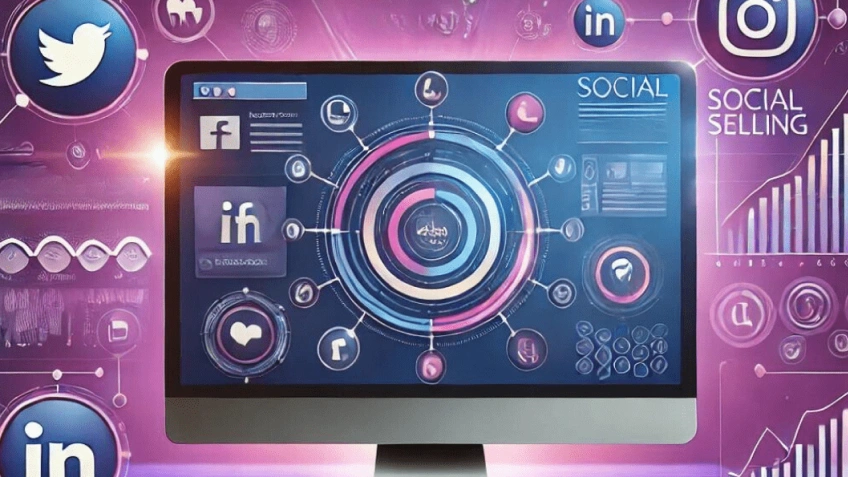By Tanmay Das

Do you know what separates a good digital marketer from a great one in this competitive digital era? In-depth understanding of various digital marketing channels that boost engagement and multiply sales. If you want to become the best one, dive into the top 10 digital marketing channels to build impactful campaigns and advance your career in no time!
The digital landscape is a boundless ocean of possibilities for businesses, and for aspiring marketing students, it is the perfect time to build a rewarding career. However, with new technologies and tools evolving every day, you need to understand the core digital marketing channels to truly thrive.
In 2024, the Indian digital advertising market generated $13,632.3 million 2024. This figure is expected to rake in $32,328.8 million by 2030 at a CAGR (compound annual growth rate) of 15.3% from 2025 to 2030.
These whopping numbers indicate that digital marketing is a growing industry, making it one of the best job-oriented courses. If you are seeking a career in this field, mastering various digital marketing channels is no longer an option; it is a fundamental skill to succeed.
Whether you are a starter, a career switcher, or a seasoned professional, understanding different digital marketing channels can greatly help you in your endeavour.
Let’s get started!
A digital marketing channel refers to any online platform or method that a business utilises to interact with its target audience and promote its products and services. Digital marketing channels use the internet and other technologies to reach prospective customers on the platform where they spend most of their time online–smartphones, tablets, laptops, and computers.
These platforms act as online pathways to send marketing messages to the target audience. Each channel uses different tools and reaches people in its own way. The key goal of these platforms is to reach customers, build brand awareness, drive more traffic to websites, find new customers, and boost sales.
Here are the key components of different digital marketing channels:
Digital marketing channels offer numerous benefits over the traditional way of promoting a brand, product, or service, making it a must-learn skill in 2025. Here is the list of key advantages:
Wider Reach (Global & Local)
All digital marketing channels surpass geographical boundaries. It enables businesses to connect with customers across the globe or even reach audiences in specific locations. This is why modern digital marketing methods are far better and provide positive results than traditional marketing methods. This massive reach helps businesses reach new markets and expand their customer base.
Precise Targeting
Digital channels allow businesses to target specific demographics, behaviour, preferences, and even location. This precise targeting ensures that promotional messages are seen by only those people who are most likely interested in the particular product or service. This relevant and more effective outreach increases the chances of conversion and sales.
Cost-Effectiveness
Digital marketing offers comparatively higher ROI (return on investment) than traditional forms of promoting offerings. Even with a smaller budget, businesses can start their marketing campaigns, optimise them in real-time, and achieve efficient targeting and measurable results.
Measurable Results
Almost all facets of digital marketing can be tracked and analysed. From website traffic and social media engagement to conversion rates, measurable data enables analysis and facilitates improvements in various marketing efforts. The data which is collected offers invaluable insights into the performance of each marketing campaign, allowing businesses to understand what is working and make adjustments for improvement.
Enhanced Customer Engagement
Various digital channels allow businesses to communicate with their customers through social media, email, and more. This enables businesses to build strong and deeper relationships with the target audience, create brand awareness and loyalty, take direct feedback and offer instant support. This two-way communication enhances customer experience, which gains more leads, ultimately boosting sales.
Personalisation
Digital marketing channels allow businesses to offer a personalised customer experience through tailored messages and offers to one’s preferences and behaviour. This personalisation makes marketing appealing to the recipient, which increases the likelihood of engagement, conversion, and sales.
Higher Conversion Rates
As digital marketing allows precise targeting and personalised communication, marketing campaigns lead to higher conversion rates. Through different digital marketing channels, businesses can guide prospective customers through a seamless buying journey.
Flexibility & Agility
Digital marketing campaigns not only can be launched quickly but also adjusted in real-time, modified and paused based on performance data. This flexibility allows businesses to quickly respond to evolving market changes, customer needs, or competitors’ actions.
Having a good knowledge of the diverse digital marketing field is crucial for students aspiring to become successful marketing professionals. Undoubtedly, digital marketing is a leading career. If you are seeking a career in this field, you can check out tips to start a successful digital marketing career at this link: https://www.karmickinstitute.com/resources/10-essential-tips-to-start-career-in-digital-marketing
Here is the list of the top 10 digital marketing channels with a short overview and key areas of focus in each.
SEO is the process of optimising a website to improve its ranking and keep its position at the top of SERPs (search engine result pages) like Google, Yahoo, and Bing. The key goal is to drive organic (unpaid traffic) to the website, and it is considered among the best digital marketing channels for e-commerce.
What is it?
SEO is a set of different practices to enhance a website’s visibility on various search engines.
Main Areas of Focus:
SMM includes leveraging social media platforms to interact with a specific audience, build brand awareness, drive traffic, generate leads, and increase sales. Several top-rated digital marketing courses often include all essential concepts, including SMM.
What is it?
SMM is using social media platforms like Facebook, Instagram, X (Twitter), LinkedIn, etc., to promote products and services.
Main Areas of Focus:
PPC is a direct way to drive traffic to a website. Instead of waiting for organic traffic, it involves paying a particular amount of fee every time a prospective customer clicks your ad (that’s why it is called Pay Per Click).
What is it?
PPC is a paid advertising model where the advertiser pays a certain fee every time their ad is clicked.
Main Areas of Focus:
It is a broader term that includes both PPC and SEO. SEM is about acquiring traffic and visibility from search engines through both paid and organic marketing efforts.
What is it?
SEM is an all-inclusive strategy that involves both organic improvements and paid advertising to increase a website’s visibility in SERPs.
Main Areas of Focus:
It involves sending promotional messages to a list of people using email. This digital marketing channel is an effective way to build relationships with prospective and existing customers, promote products, and increase sales. Email marketing is considered among the best digital marketing channels for e-commerce.
What is it?
Email marketing is communicating directly with a group of interested people through email.
Main Areas of Focus:
Email Analytics: Tracking open rates, click-through rates, conversions, and unsubscribes, and making adjustments accordingly.
It is a performance-based marketing plan where a business or multiple affiliates promote specific products or services in exchange for a fee or commission.
What is it?
Affiliate marketing is paying a percentage or commission to an affiliate/other businesses for each sale or customer they bring.
Main Areas of Focus:
Relationship Management: Building and maintaining relationships with affiliates for the smooth running of business programs.
It involves creating and distributing insightful, high-quality, and relevant content consistently to attract and retain an audience, and to increase conversion and sales.
What is it?
Content marketing is a strategic approach to creating and distributing content to attract and retain the target audience.
Main Areas of Focus:
It is a marketing activity conducted through mobile devices such as smartphones and tablets. As mobile devices are used by billions of people worldwide (approximately 7.21 billion smartphones), mobile marketing is reaching this massive audience where they spend most of their time.
What is it?
Mobile marketing is promoting brands, products, or services through mobile devices, including SMS, mobile-optimised websites, and app-based marketing.
Main Areas of Focus:
Mobile Ad Formats: Understanding and leveraging different types of ads optimised for mobile screens.
It leverages video content to promote products or services, increase engagement on various digital channels, and reach and inform the target audience. Video marketing is a highly demanded digital marketing skill in today’s mobile-first era.
What is it?
Video marketing is leveraging video content to promote products, services, or a brand.
Main Areas of Focus:
Video Analytics: Analysing views, engagement, watch duration, and conversion.
This involves using AI-powered chatbots to interact with prospective and existing customers on apps, messaging platforms, or websites. Chatbot marketing provides instant support, automates sales processes, and generates leads.
What is it?
Chatbot marketing is integrating AI-powered chatbots to communicate with customers, generate leads, and automate sales.
Main Areas of Focus:
There are several reasons to learn digital marketing. However, today’s competitive tech landscape demands more than just a skill. Mastering all digital marketing channels is no longer an option; it is a fundamental skill for any aspiring marketer. If you want to stay ahead of the growing competition, you need to acquire expertise in these core digital channels.
Feeling overwhelmed about learning so much? Don’t worry, these aspects of digital marketing are easily graspable only if you enrol in the right digital marketing with AI courses.
Our advanced digital marketing course in Kolkata can transform you into an expert professional in 6 months. You can gain hands-on experience, boost your career prospects with an E&ICT Academy – IIT Guwahati certification, and secure a high-paying job through our 100% placement assistance program.
So, don’t wait anymore!
Contact us to learn more about our program and understand how we can transform your tech career in 6 months!
Why is it important to use multiple digital marketing channels?
Using multiple digital marketing channels allows businesses to reach a wide audience and enhance brand visibility. Plus, this approach helps in catering to different consumer preferences and crafting more effective marketing strategies.
Which digital marketing channel offers the highest ROI?
The highest ROI channel greatly depends on the business, target audience, and marketing campaign goals. While SEO and email marketing offer high ROI due to cost-effectiveness and consistent results, any channel needs proper planning and execution.
Are organic or paid channels more effective?
Neither of these channels is inherently more effective. Both channels serve different purposes and work best when properly executed. While organic channel drives sustainable traffic and build long-term relationships, paid marketing gives quick visibility and results.
Is email marketing still effective in 2025?
Absolutely! Email marketing is still a very effective digital marketing channel in 2025 for nurturing leads, building brand loyalty, and increasing conversion.
Is paid advertising better than SEO?
SEO and paid advertising are not meant to be compared, as both channels complement each other. While paid advertising offers instant results, SEO drives long-term organic traffic.
How to measure the performance of different marketing channels?
When it comes to measuring the performance of different online marketing channels, tracking key metrics comes into play, such as website traffic, CPA, ROAS, and conversion rates. You can utilise analytical tools like Google Analytics, social media insights, and CRM dashboards to collect and analyse data.
What is the best digital marketing channel?
There is no one best digital marketing channel. Because the best one depends on the business goals, target audience, budget, and more.
Is social media marketing worth it?
Yes, with billions of users worldwide, social media marketing is definitely worth it for various businesses. These platforms are great for creating brand awareness, engaging with customers, building community, driving website traffic, and generating leads.
Read more blogs:

Prasenjit Das, a results-driven Digital Marketing Strategist with 14 years of experience, specializes in AI-powered and data-driven marketing strategies that deliver measurable results. He empowers learners with hands-on digital marketing and AI skills, helping them excel in today’s competitive industry.